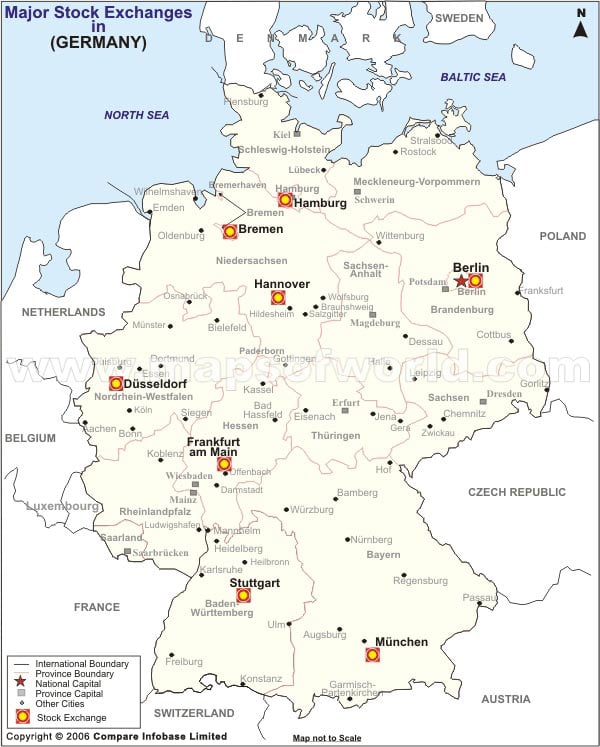The GNI per capita of the economy was $ 25,250 in 2003. In terms of purchasing power parity, Per capita GNI in 2003 was the US $ 27,460, placing it at a lower rank among the other OECD countries.
The average annual growth rate of GDP has been on a decline since the early 1980s and no growth was observed in total output during the year 2003.
Among the various sectors of the economy, manufacturing and related services are still at the heart of the German economy even if the share of overall industrial output in GDP has declined from 34.5% in 1993 to 29.6% in 2002. The UNDP 2004 report shows that 8.3 % of Germany’s population lives below the income poverty line (50% of median household income). Book Mexicana airlines, and Lufthansa airlines flights on mapsofworld.com online. Germany has a total of eight stock exchanges. Frankfurt Stock Exchange is one of them. It is one of the biggest and most efficient exchange places in the world. The Deutsche Borse owns this stock exchange. Around 43% of the 300 market participants in Frankfurt are from abroad. The trading indices in Frankfurt are DAX, DAXplus, CDAX, LDAx, MDAX, SDAX, TecDAX, and VDAX.
The Stuttgart Stock Exchange is Germany’s second-largest stock exchange. Many important financial companies such as Allianz Life Insurance, LBBW Bank, and Wustenrot have their headquarters in Stuttgart. Hamburg Stock Exchange is the oldest stock exchange in Germany which was founded in 1558. The Hamburg and Hanover Stock Exchanges merges merged together to form a joint organization called the BOAG Borsen AG.
Berliner Borse (Berlin Stock Exchange) merged with Borse Bremen to form Borse Berlin-Bremen. Dusseldorf Borse and Hamburg and Hannover Stock Exchanges are the other two important stock exchanges in the country.
German Stock Exchange
|
